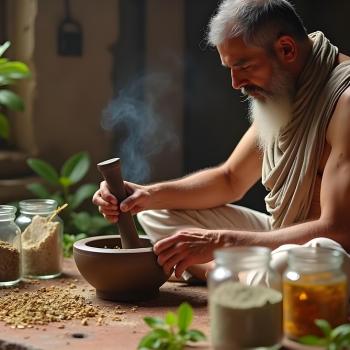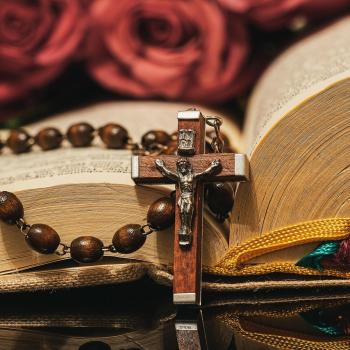My husband and I have been praying lectio divina every morning together for the last several months. We also pray what is known as lectio continua, or the ancient practice of choosing a book of the scriptures and then praying through a couple of verses each day until we reach the end. It is a version of monastic stability, of staying with something through all of its ups and downs. We pray texts we might otherwise avoid. Earlier this year we worked through the Song of Songs in this way, and now we are praying the Psalms one by one.
We find ourselves in the midst of Psalm 10 currently, a difficult psalm of lament. Instead of reading all the way through to the end and finding immediate resolution in the psalmist's cry of hope to God, we have been sitting each day with two verses at a time, with haunting questions about God's presence echoing through. Even more disturbing are the images of the "enemies," the ones whose "mouths are filled with cursing, deceit, and opposition." Or those who "murder the innocent" and "stealthily watch for the helpless." The psalmist later calls out to God to "break the arm of the wicked." As I sit with these images I want to turn away and say these have nothing to do with me and my peaceful life.
Yet, in prayer the invitation arises: What are the ways I deceive myself? What are the places of opposition within my own heart? How do I "murder" my own innocence? Or take advantage of that which feels helpless within? How do I fuel my own self-destruction?
I am discovering the psalms as a beautiful gateway of awareness into my own inner multitude.
Our heads and hearts are full of crazy, often self-defeating, competing voices. We are each a multitude of differing energies and personalities. We contain within the parts that feel tender and ashamed, alongside the courageous and fierce, the joyful and giddy. It often feels easier to simply push the voices away, but it is exhausting.
A lot of our inner conflict comes from our stubborn refusal to make space for the multiplicity we contain. One of my favorite lines from the Rule of Benedict, that 6th-century source of great wisdom for daily living, is "All guests who present themselves are to be welcomed as Christ, for he himself will say: I was a stranger and you welcomed me." I love this invitation to welcome that which feels the most strange as the very face of God. The door might be outside of us, but just as easily it is within. We each have parts of ourselves we try to push away.
These voices often fight within us for primacy. They each want to define who we are. Especially loud can be the inner judge, who thinks she knows everything. She sounds very authoritative.
There is a deeper and wiser voice, which is the Self, or sometimes called the Inner Witness. It is the calm and compassionate part that can sit in the center of all this chaos and behold it all. It is the part we develop through meditation and is not carried away by conflicting inner demands. This is the voice of the soul.
When we continue to follow the judge, or the inner critic, or any of the especially loud and forceful voices inside of us, without recourse to the whole range of who we are, we often find ourselves full of self-doubt, insecurity, and become depleted.
These voices often originated as a way of protecting ourselves. The judge can help us to discern what is true and good. The critic can help cut away the excess.
Not all of the voices within us are "negative." Many of these energies can offer us tremendous resources for living in an empowered way. Some of my favorites are the inner warrior, who helps me to set healthy boundaries. My inner orphan reminds me that I have a lot of tenderness within, which just wants to be seen and not fixed. My inner lover calls me to follow my passions in life, to remember that what I am in love with—whether ideas or communities or people—will ignite vitality in my work.
These have their shadow elements too. An overeager warrior can become destructive or set boundaries that don't let anyone in. An orphan who feels completely abandoned can continue the cycle by cutting off relationships out of fear of being hurt. And the lover who is out of balance may find him- or herself envious of the others who follow what lights them on fire.
The Self or Witness within us always speaks with tremendous compassion, always invites us to begin again. This voice can behold and welcome in all of the parts who want to speak, and not be overwhelmed by the demands of a single one. The Self can see where the shadowed and hurting places are and respond with gentleness and kindness, and yet also can call in a powerful fierceness when needed.
Carl Jung called these energies archetypes, images that exist across space and time and are available to each of us to bring balance and wholeness to our journeys.
Monastic wisdom tells us that hospitality is key. Welcoming in the stranger, even if that stranger is me, or at least parts of me.





